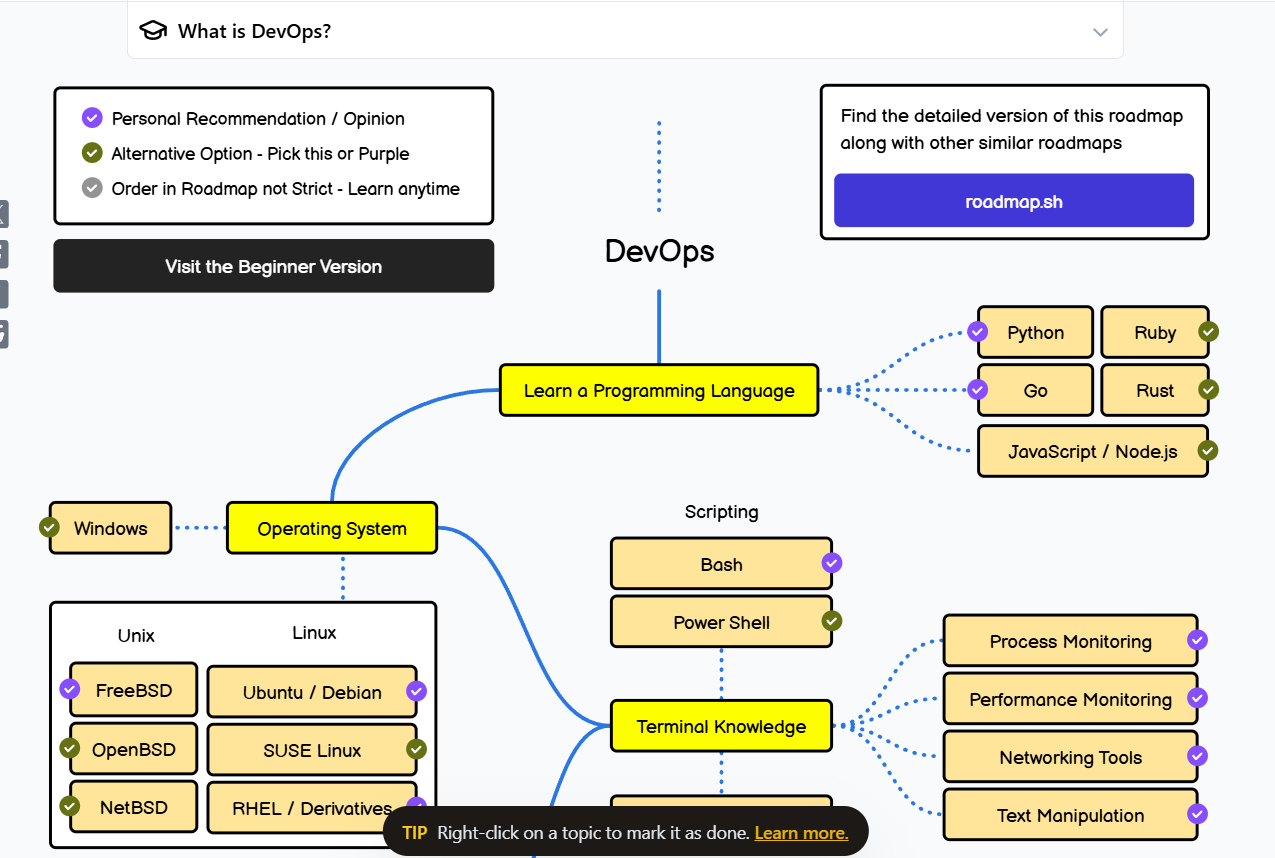Beginning of a Journey - Day 1
 Sahal Imran
Sahal Imran
Introduction
Hi, I am Sahal, I will take you along with me in my transformative journey of becoming a DevOps engineer.💻 Here I will post about what I will learn, the questions I will be practicing and challenges I will be completing and going through. You can also connect with me on telegram to join me along and will learn and grow together Connect Here
The first step is to know, what exactly is DevOps?
In order to answer my question, I googled what is DevOps and landed on Atlassian's page, I found this really helpful, you can visit the by clicking here.
Here are my takeaways for it.🧑🏼💻
What is DevOps?
DevOps is a cultural and technical movement that merges development (Dev) and operations (Ops) teams to enhance the delivery of software. Here’s a closer look:
Collaboration 🤝: Breaks down the silos between development and operations teams, fostering a culture of continuous improvement.
Continuous Integration and Continuous Deployment (CI/CD) 🚀: Automates the process of integrating code changes and deploying them to production, ensuring faster and more reliable releases.
Infrastructure as Code (IaC) 💻: Manages and provisions infrastructure through code, making it easier to replicate environments and scale.
What is Automation, Scaling, and Infrastructure?
These three concepts are at the heart of DevOps, enabling efficient and scalable systems.
Automation ⚙️:
Definition: Automating repetitive tasks to save time and reduce human error.
Real-World Example: Automating the deployment process with Jenkins or GitHub Actions to quickly release new features.
Scaling 📈:
Definition: The ability to grow or shrink resources to meet demand.
Real-World Example: Using Kubernetes to automatically scale web server instances based on traffic.
Infrastructure ⚙️:
Definition: The underlying physical and virtual resources that support software applications.
Real-World Example: Cloud platforms like AWS, Azure, and Google Cloud provide scalable infrastructure for hosting applications.
Why DevOps is Important?
DevOps brings numerous benefits to organizations, making it a vital practice in modern software development.
Faster Time-to-Market ⏱️: Reduces the time it takes to deliver features and updates, keeping businesses competitive.
Improved Collaboration 🤜🤛: Encourages open communication and collaboration between teams, leading to better solutions.
Higher Quality 🌟: Automated testing and monitoring ensure that bugs are caught early, resulting in more reliable software.
Cost Efficiency 💹: Optimizes resource usage and reduces waste, lowering operational costs.
While discovering the importance of DevOps I found out about how Netflix uses DevOps to seamlessly deliver services to millions of users together.
How Netflix Became a Master of DevOps
Netflix is a prime example of an organization that has mastered DevOps to deliver a world-class streaming experience. Here's a breakdown of their journey:
Microservices Architecture 🏛️:
What They Did: Netflix moved from a monolithic architecture to microservices, allowing them to scale individual components independently.
Why It’s Important: This shift enabled faster deployments and more resilient systems.
Although I'm not much aware of how microservices but I'll get to it.
Automated Testing and Deployment 🛠️:
What They Did: Implemented a robust CI/CD pipeline with automated testing and deployment processes.
Why It’s Important: Ensured rapid and reliable delivery of new features and updates.
Chaos Engineering 🌪️:
What They Did: Introduced the concept of Chaos Monkey, a tool that intentionally causes failures to test the system’s resilience.
Why It’s Important: Helped Netflix identify and fix vulnerabilities, ensuring a seamless viewing experience even during outages.
Global Infrastructure 🌍:
What They Did: Leveraged cloud services to deploy and manage their infrastructure across the globe.
Why It’s Important: Enabled Netflix to serve millions of users with low latency and high availability.
You can read the whole article on Netflix by clicking here.
I am following the roadmap on DevOps on roadmap.sh you can also view the roadmap by clicking here.

Next Step
My next step is to learn about Linux Operating System, specifically ubuntu as I also plan to use it personally on my other laptop as Linux based OS are more suited for less powerful system moreover Linux is also used in most of the server in today's era followed by windows.
Subscribe to my newsletter
Read articles from Sahal Imran directly inside your inbox. Subscribe to the newsletter, and don't miss out.
Written by
